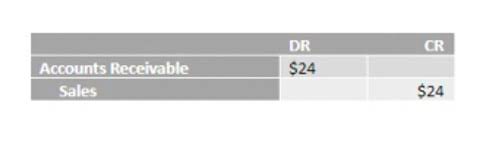Construction Bookkeeper Job Description

Construction firms who work on public projects commonly have to navigate prevailing wage payroll, often called “Davis-Bacon payroll” after the landmark Davis-Bacon Act. For most contractors, retainage is simple enough on paper, even though, by nature, it’s an exception to the rule. Among other areas of guidance, these standards help contractors identify whether they should recognize revenue on their books at a single point in time (as with CCM) or over time (as with PCM). It tracks these not only to each job but also within each group of job activities and each type of cost.
- Infrastructure projects like roads, bridges, and utility installations require careful tracking of large-scale equipment costs, labor, and materials.
- I appreciate that it’s never an issue to get them on the phone if I need a question answered.
- But because it’s part of a contract obligation, the parties must settle ahead of time when control is transferred — at a point in time or over time — to account for income appropriately.
- Call them now and schedule a meeting with one of our expert bookkeepers to discuss your construction accounting requirements.
- Overall, using cloud-based solutions designed for construction, you can improve collaboration, reduce duplication of effort, and deliver your projects more efficiently.
- Specialized bookkeeping helps contractors, builders, and construction firms maintain compliance with tax regulations, monitor cash flow, and make informed financial decisions.
Setting up a Construction Bookkeeping System
Bookkeepers offer clarity and stability in complex business finances, making them indispensable to any organization. A bookkeeper’s role is not limited to crunching numbers; it permeates every aspect of a business. Their meticulous record-keeping and reporting enable data-driven decisions, optimizing resource allocation, reducing wastage, and identifying growth opportunities.
Tax Compliance
Before choosing a bookkeeping software, ask if they offer a free trial and use that time to get familiar with the way it works. On the other hand, if it’s super easy to use but doesn’t provide the flexibility you need, you should consider trying a different one. Nothing would be worse construction bookkeeper than losing years of data to a computer crash or natural disaster.
Turn receipts into data with Shoeboxed ✨
These reports provide insights into spending patterns, aiding in budget management and financial planning. Shoeboxed integrates seamlessly with popular accounting software like QuickBooks, Xero, and Wave. The Shoeboxed mobile app lets construction workers capture receipts and track expenses directly from the job site. This ensures that all costs are recorded promptly, reducing the risk of lost receipts and unaccounted expenses. Business owners can significantly simplify and streamline construction bookkeeping by automating receipt management, organizing expenses, and integrating with accounting software. Another benefit of automating your construction accounting is paying quarterly taxes to minimize tax burden during tax time.
The size of the transaction does not matter; Each transaction is important to keeping accurate bookkeeping records. If you don’t have a highly accurate and efficient construction bookkeeping system, the rest of your business will suffer. Construction bookkeeping is one of the most vital parts of the business for many construction companies. Construction bookkeeping presents unique challenges that can complicate financial management.

Maintaining a Separate Business Account
You could have one account reserved for paying expenses, fixed assets another one for managing payroll, and a third one for receiving payments for clients. Below are 5 tips that should be standard practice for bookkeepers of contracting businesses. You must disclose all short-term/current debt and long-term debt on your income statement. Any principal payments due over the next five years must be notated as such on your income statement as well.

These larger businesses also include Bakery Accounting general overhead costs within each project, which has the advantage of providing clear insight into exactly how profitable each job is. One potential downside of the accrual method is that businesses can pay income tax on unrealized profit since the accounting system can record revenues that have not yet been received. One way to mitigate this problem is to structure contracts with the profit evenly distributed rather than front-loaded. Job costing is a form of project-based accounting that helps construction companies keep track of the expenses for a specific job or project.

It is crucial to track these different expenses to be a successful construction company. Caryl Ramsey has years of experience assisting in different aspects of bookkeeping, taxes, and customer service. She uses a variety of accounting software for setting up client information, reconciling accounts, coding expenses, running financial reports, and preparing tax returns.
- Non-compliance can lead to legal issues, financial penalties, and company reputation damage.
- Ensure timely and accurate payroll processing for employees and subcontractors.
- Bryana streamlines the communication and document control process and prevents our clients from working all day in the field only to come home and do paperwork at night.
- On the other hand, sole proprietorships and partnerships simply list the capital belonging to the owner — or to multiple owners.
- Contractors need precise tracking and reporting, as well as collection and cash-flow strategies to maintain long-term success.
What makes bookkeeping for construction companies different?
With PCM, revenues are recognized proportionally to the portion of work completed so far. Because it reports both income and expenses throughout the project, this method tends to paint a more complete and accurate financial picture. Because of the mobile nature of the construction industry, construction accounting must consider the costs of transporting people and equipment to and from various job sites. It must also factor in the varying costs of wages and the different regulations in effect in different areas that the company is working within. Clients, subcontractors, and suppliers are all parties to contracts in construction projects.